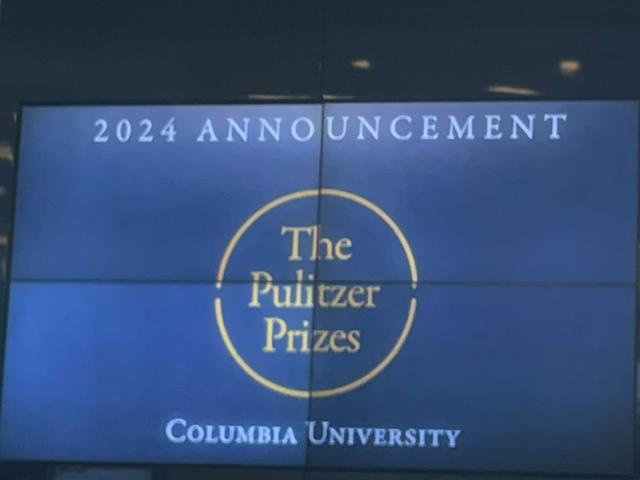In a dramatic revelation of media and conflict interplay, the 2024 Pulitzer Prize winners, announced on Monday, have stirred widespread controversy. Notably, the award was granted to several photographers who captured chilling scenes from the deadly Hamas-led massacre on October 7 and the subsequent war in Gaza, sparking intense debate over the ethics of wartime journalism.
Among the recipients was Ammar Awad, a Palestinian photographer from East Jerusalem, who was honored for his harrowing depiction of the massacre’s aftermath, where 14 elderly Israeli-Russian citizens, some Holocaust survivors, were brutally slain by terrorists at a Sderot bus stop. This group was caught in a vulnerable moment while their bus driver changed a tire, right as rocket sirens wailed. Tragically, a nearby bomb shelter was locked, leaving them exposed to the horrific attack that ensued as two vans of terrorists pulled up and ruthlessly opened fire.
Reuters photographers have produced thousands of images documenting the Israel-Gaza war, which began with the militant group Hamas' early-morning Oct. 7 attack. See the images that were awarded the Pulitzer Prize in Breaking News Photography: https://t.co/TaRvd4sNC7… pic.twitter.com/dOVlRla8ap
— Reuters (@Reuters) May 6, 2024
Amidst the awards, another figure, Yasser Qudih, a Gazan photographer, has drawn particular scrutiny. Qudih was documented accompanying terrorists during their assault into Israeli territory. His work, clearly captured under dubious circumstances and to some, proving his forknowledge of the attack, features an Israeli tank capture and the hostage-taking of Israeli citizens. This has raised alarms about his prior knowledge of the attack plans, especially as his residence was bombed shortly after these revelations came to light, suggesting possible retribution or deeper involvement.
The Committee, sidestepping potential scandals, chose not to honor New York Times photographer Yousef Massoud, who was embroiled in controversy for his proximity to Hamas's Nukhbah terrorists during their incursion into Israel, where they committed horrific acts of violence and atrocities. Some have accused Massoud of snapping pictures while the militants were raping their way across southern Israel and killing civilans in cold blood, however this has not been proven.
Hamas is awarded the 2024 Pulitzer Prize for their massacre selfies and POV rape and murder films 🤮 https://t.co/SHuL3XrOSH
— Evero (@FiftyTurtles) May 6, 2024
The Pulitzer committee also acknowledged Israeli photographers Amir Cohen and Ronen Zvulun for their contributions, capturing the resilience of Israelis amidst the chaos. Despite these commendations, the committee’s decision to honor Qudih and Awad has ignited a firestorm of criticism, questioning the line between journalism and complicity in terror.
Further controversy enveloped the awarding of a Pulitzer to Nathan Thrall, a Jewish author known for his critical stance on Israeli policies. His novel, "A Day in the Life of Abed Salama: Anatomy of a Jerusalem Tragedy," offers a poignant exploration of Palestinian struggles under what they call the "Israeli occupation", which was timed explosively just before the October massacre.
The article that led to Nathan Thrall's Pulitzer Prize-winning book was hailed as an extraordinary piece that breaks new ground, informing readers about the true reality on the ground in Israel, the West Bank and Gaza.
— HonestReporting (@HonestReporting) May 7, 2024
In reality, the 20,000-word document is a virulent… https://t.co/uaOnwb8jv7
The Pulitzer Prizes, amid these selections, have become a focal point for a heated debate on media ethics, the portrayal of conflict, and the narrative battles waged in the court of public opinion. The Committee's selections have ignited debates over the role of journalism in conflict zones, highlighting the perilous conditions under which journalists operate and the profound impact of their work in shaping public perception and understanding of these tragic conflicts as well as what their responsibilities are when it comes to acts of terror and crimes against humanity. Knowing what was happening in Israel on October 7th, did Awad and Qudih have an obligation to inform and if not, do they have an obligation to share the photos not published with investigators?


